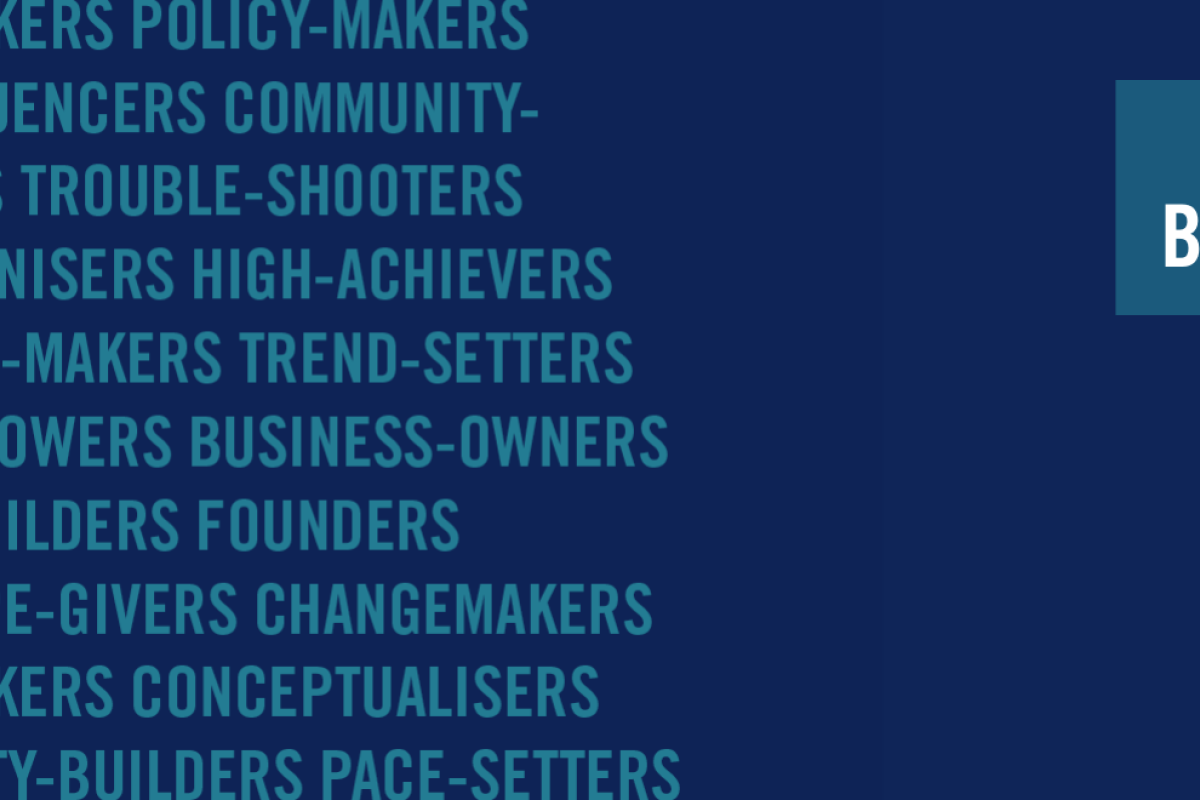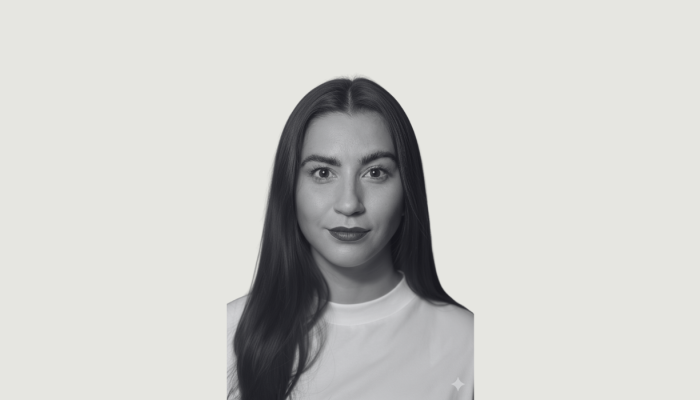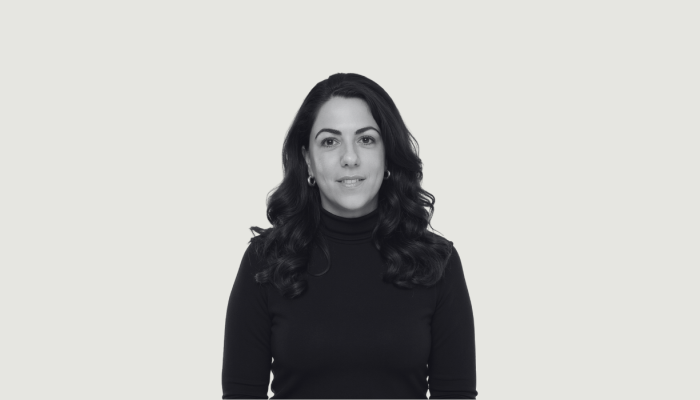“All we want to know is that there is hope”
- Mary Portas, The Marketing Society Conference
Amen to that. As marketers. As humans. As a society.
The twin C’s loomed large over the Marketing Society Conference this year.
Covid and Climate. And how to address both as marketers and brands.
A few years ago, I heard the CEO of Greenpeace talk at a conference and something he said that day stuck with me. That day he said, “It’s too late to be pessimistic”. I think this could have equally been a mantra for today.
There were many themes that emerged from the first IRL conference I’ve been to since this whole pandemic thing hit. But the main one that will stay with me is the role of optimism in achieving it. The Harvard Business Review ran an article in 2019 titled “The Financial Side of Being an Optimist” that showed belief in success was a key multiplier in your chances of success. And I think that came across loud and clear in the QEII hall.
My personal highlight of the day was listening to the brilliant Dr Andrew Pollard telling the story of the creation of the Astra Zeneca/Oxford vaccine in the time frame everyone said was impossible. The lesson? Optimism, hard work and collaboration. I’d argue that’s a blueprint for success in any business! And it was discussed that the first and third of those factors is the key to addressing the climate crisis.
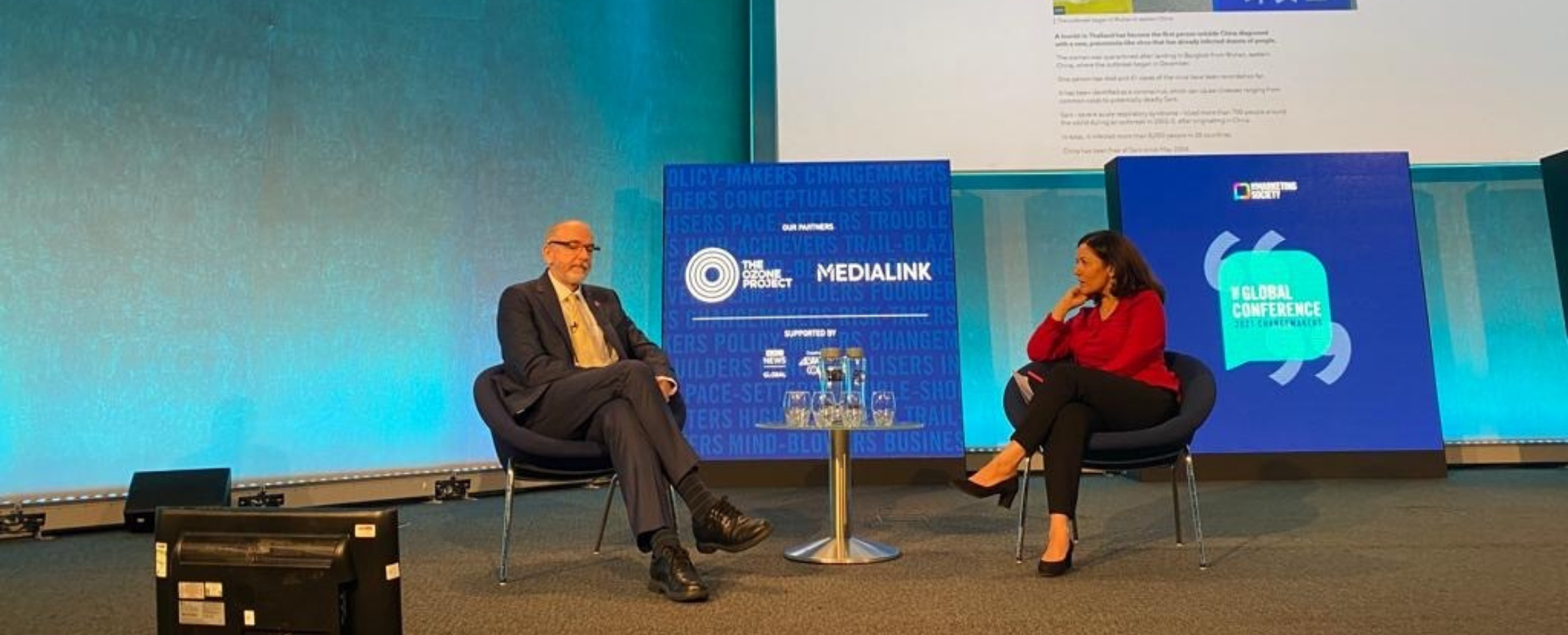
Change. Change making. Changemakers. We heard from some pretty impressive ones. One thing that really hit home was that change isn’t easy. I know from writing “The Creative Nudge” that humans struggle with doing new things. We’re risk averse. We want to “wait for the data”. But Margaret Heffernan (author of “Uncharted”) started the day strongly by telling why that is a dangerous approach. Data doesn’t solve problems; in fact it can often create new ones. As she so accurately summarised:
“There is no data set for the future. The models only model the past. Different is outside the model.” She described herself as a “hopeless optimist”
I liked that. This was something that was recurring; that the ‘bravest’ (read silliest and most dangerous) thing to do in these times is to NOT change, to stay with the status quo.
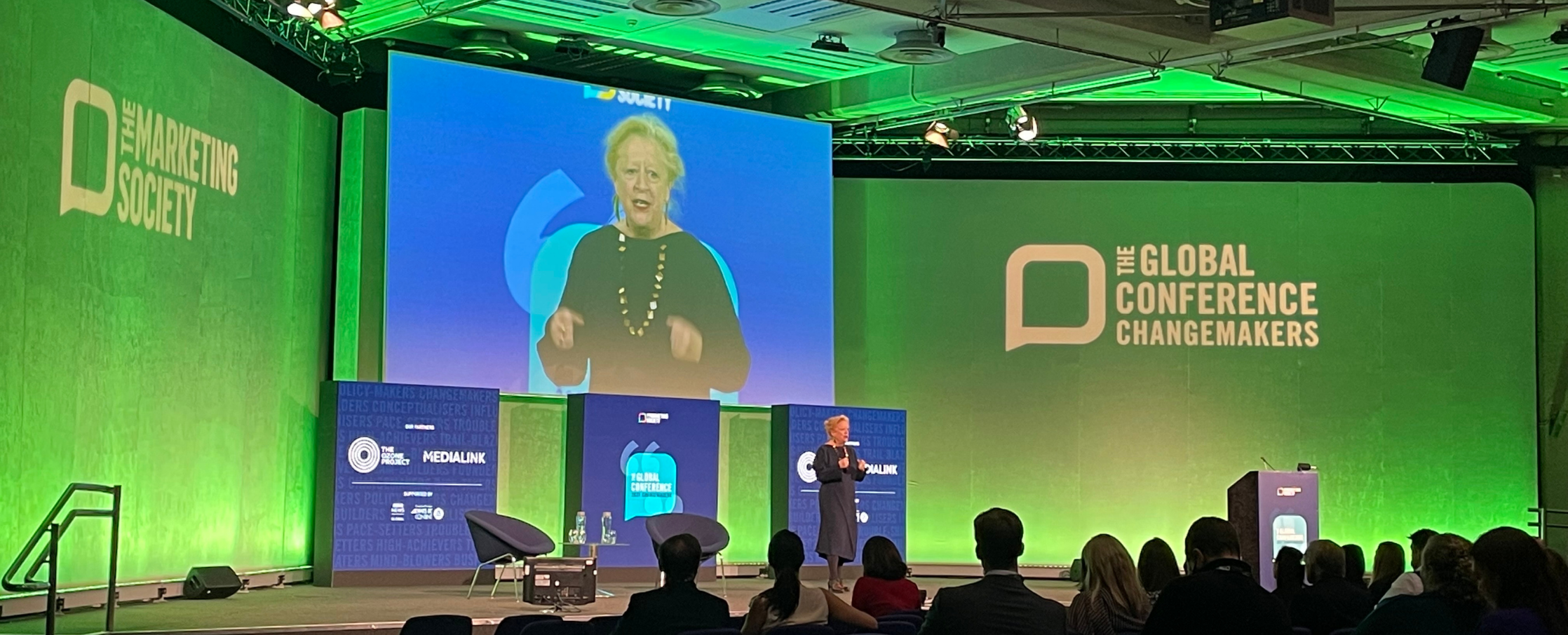
Main themes I took out, other than optimism driving impactful change were:
Don’t wait to change: It’s fatal.
Many people mentioned Debenhams, Gaps and Woolworths. Mary Portas also sounded a bit of an ominous warning for John Lewis and M&S in this vein if they don’t learn the lessons.
Leaders have to create the conditions for change: Humans aren’t naturally brave creatures and we tend to follow habits – wonderfully outlined by Kathleen Saxton in her talk on neuroplasticity. Leaders have to create the conditions for people to try, fail and learn.
Any sector can change
I loved listening to Greg Jackson from Octopus Energy telling the story of how they shook up the sleepy energy sector. I loved the counter-intuitive way they did it too. Why not apply their models to other failing sectors like water?
Greg Jackson from @OctopusEnergy. “A boring sector is just lack of imagination from people in the sector” @TheMarketingSoc #ChangemakersConference
— kevinchesters (@hairychesters) November 10, 2021
Good guys (and girls) can finish first: Andrew Pollard, Greg Jackson, Tim Smit (Eden Project) all showed that treating people decently can lead to business success. I loved that. I’m enjoying reading Mary Portas “Rebuild” at the mo. And I love her thought that we should just act like decent human beings.
Ty Heath from LinkedIn picked up on the theme too as to how we can better drive D&I adoption – building on the work of David Mayer, “It’s the right thing to do” vs. economic/statistical arguments. Doing the right thing is proven to pay back.
Change is possible
So many great case studies from today showing that it is possible to change and change for the better. With the right attitude (Kathleen Saxton) and the right tools (Karen Blackett)
Another quote that leaps out from my pad as I write this is the one that Katie McAlister said about how TUI embraced flexible working in the pandemic:
“Work is what you do, not where you go”.
Boris Johnson, take note.
Other than that it was a true delight to get to spend time, chat and (yes) HUG people I haven’t seen in ages. Old colleagues (hi Kitty, hi Jan), old mates and it was also great to realise that Mark Earls isn’t just a Twitter avatar. What a nice fella, I’m happy to now be part of his herd. The whole was a true triumph of scheduling, organisation and speaker choice by Sophie and her fabulous team. A fantastic intellectual minestrone of provocation, stimulation, inspiration and entertainment. Special mention to the Taskmaster segment, a proper LOL.
On a rainy day (with a few email/voicemail work bumps) I left feeling very positive. About the potential for us to change as an industry, as a country and as a species. About the fact that we have smart, motivated, nice folks who can help us do it.
I’m going to leave the final bit to Mary Portas. Yes, we can change. Yes, brands can survive and thrive post-Covid. Yes, it’s possible to be happy, nice and successful. Yes, the news should have “more good news”. Her final rallying cry for how we can change for better was amazing:
“We all just need to UNlearn”
